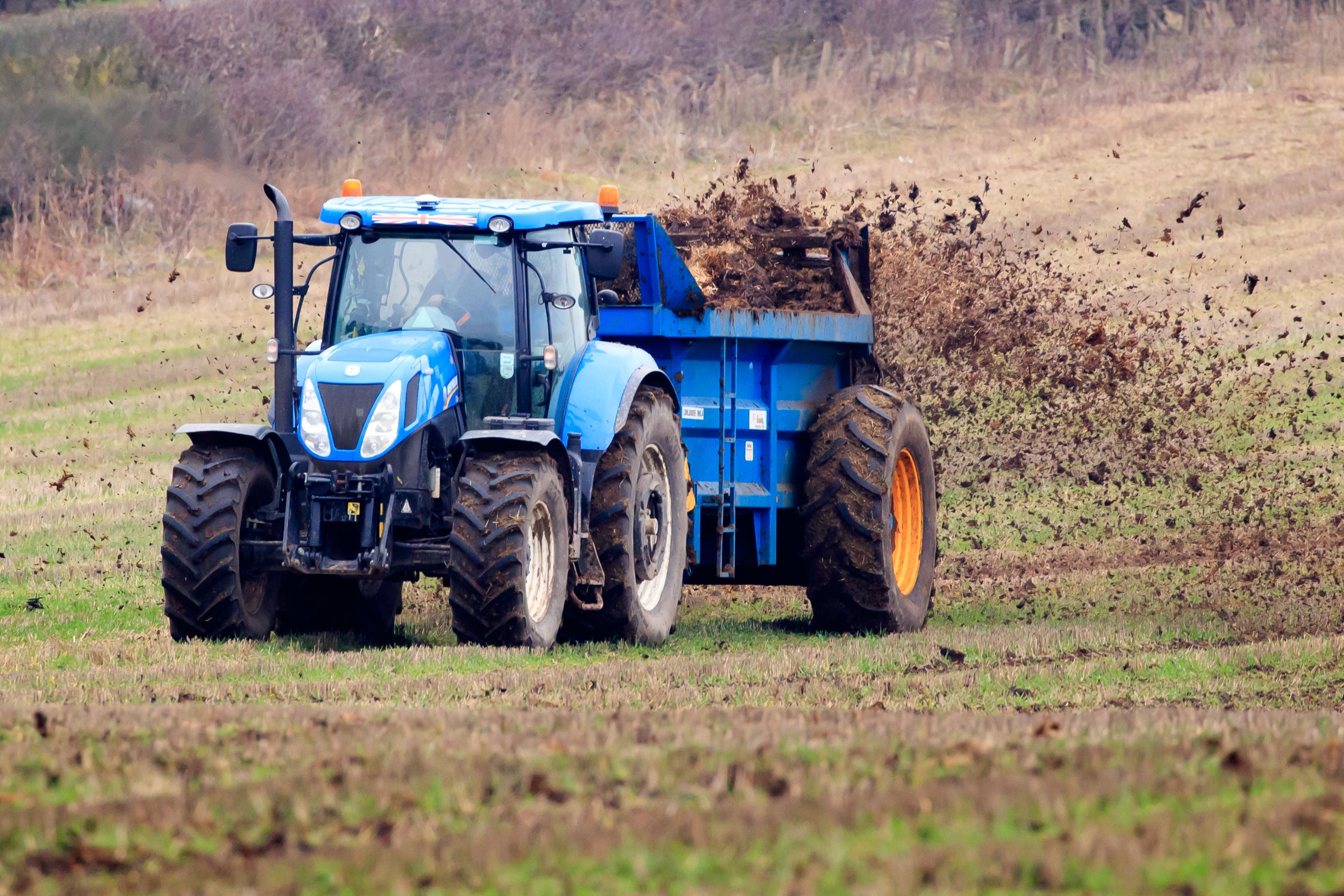Halve meat and dairy in diet to reduce nitrogen pollution, says UN
The goal is to reduce nitrogen waste from farmers’ fields by 50% by 2030.

Halving meat and dairy consumption is one of a number of ways society can reduce nitrogen pollution in the air, rivers and soil while curbing its contribution to climate change, a UN report has found.
On its own, nitrogen is a harmless gas in the atmosphere but when combined with oxygen or hydrogen it becomes a pollutant, damaging the environment, killing wildlife and poisoning our lungs as well as becoming a greenhouse gas that is 300 times more potent than carbon dioxide.
Plants need nitrogen to grow so farmers spread these chemical compounds over their fields to help their crops but create vast amounts of waste in the process.
Current practices mean that 80% of the nitrogen spread is not absorbed by the plants but leaks into the environment.
In the UK last year, £3.5 billion worth of fertiliser was wasted this way, which is equal to the total amount of UK farming subsidies.
The UN aims to reduce nitrogen waste by 50% by 2030 and a group of researchers believe the best way to achieve this is by all groups taking moderate action together rather than one sector bearing all of the weight.
Cutting meat and dairy consumption to around 500 grams of meat a week or changing farming practices and using new technology, all supported by government policies, is the best way to slow the toxic leakage contaminating rivers and the air we breathe, the researchers said.
Professor Mark Sutton, co-editor of the report and environmental physicist at the UK Centre for Ecology & Hydrology (UKCEH), said: “Let’s face it, to get to that 2030 goal is extremely ambitious.
“If we’re going to get there, what are the different ways of doing it?
It's not just the guys with the technical measures - we all need to think about our food choices
“It’s not just the guys with the technical measures – we all need to think about our food choices.
“Our food choices are affecting that water pollution and climate change. So we all need to contribute.”
Led by UKCEH with colleagues across Europe, the scientists analysed 144 scenarios involving different levels of ambition across different sectors and settled on 12 that meet the 50% nitrogen waste reduction target.
What they found to be a “demitarian” diet – cutting meat and dairy in half as opposed to going vegan – worked best alongside other measures.
These include farmers applying fertiliser and storing manure more efficiently, retailers and consumers wasting less food, water companies recovering nitrogen in wastewater treatment plants, and governments incentivising people to make more sustainable food choices.
Livestock accounts for 80% of Europe’s nitrogen greenhouse gas emissions, with beef’s impact 25 times greater than cereals.
Freeing up land to restore habitats would help tackle the climate and biodiversity crises
People eating less beef means fewer cows, which would create more space to grow food for people rather than for the animals. Currently, 40% of farmland in Europe is used for feeding livestock.
Using less fertiliser also protects farmers from the volatile price spikes seen as a result of the Ukraine war.
Dr Adrian Leip, environmental scientist at the European Commission and lead editor of the report, said: “The unprecedented rise of energy, fertiliser and food prices since 2021 underlines the need to address the vulnerability of the current food system.
“Plant-based diets require less land and fertilisers, reduce energy use and increase our resilience to the current multi-crises: food, energy, climate.
“Freeing up land to restore habitats would help tackle the climate and biodiversity crises.”
Bookmark popover
Removed from bookmarks